Is Your Job Safe From AI? What You Need to Know in 2025
It’s the big question on everyone’s mind right now: will AI take my job? For some, the idea of artificial intelligence stepping in at work sounds exciting—a glimpse into the future where tasks get done faster and easier. For many others, though, it triggers serious anxiety about job security and career futures. So, what does the data really say? Let’s cut through the noise and take a clear-eyed look at what’s actually happening in the workplace today, based on groundbreaking research from Microsoft.
Table of Contents
- How Do We Even Measure AI’s Impact on Jobs?
- Which Jobs Are Most Affected by AI?
- The Jobs Least Impacted by AI
- The Real Difference: Information vs. Physical Work
- What This Means for Your Career
- How to Stay Ahead in an AI-Driven World
- FAQ
How Do We Even Measure AI’s Impact on Jobs?
Before diving into which jobs are most at risk or most secure, it’s critical to understand how researchers are measuring AI’s influence. This isn’t guesswork or sci-fi speculation. Microsoft introduced a clever metric called the AI applicability score.
Instead of just looking at job titles, this approach breaks down every job into the individual tasks people do daily and examines how well AI tools—like Copilot—can assist with or fully handle those tasks. Even better, this analysis is based on real-world data from two hundred thousand anonymous conversations between workers and AI, showing how AI is actually being used on the job, not just theorized about.
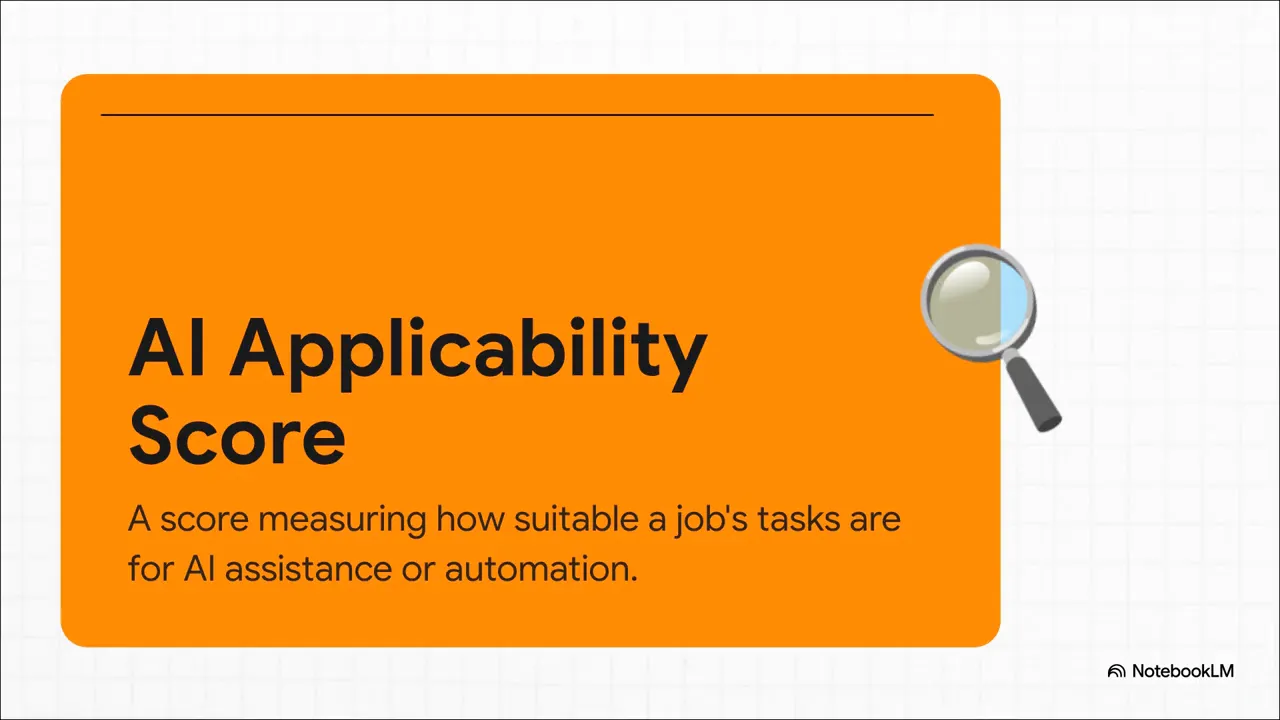
Which Jobs Are Most Affected by AI?
Now for the juicy part: which jobs are the most ready for AI to jump in and help—or even take over certain tasks? The data points to a fascinating and diverse list:
- Interpreters and translators
- Writers
- Passenger attendants
- CNC tool programmers
- Customer service representatives
These roles span from language-focused professions to technical and communication-heavy jobs. What ties them together? They all involve working extensively with information and language.
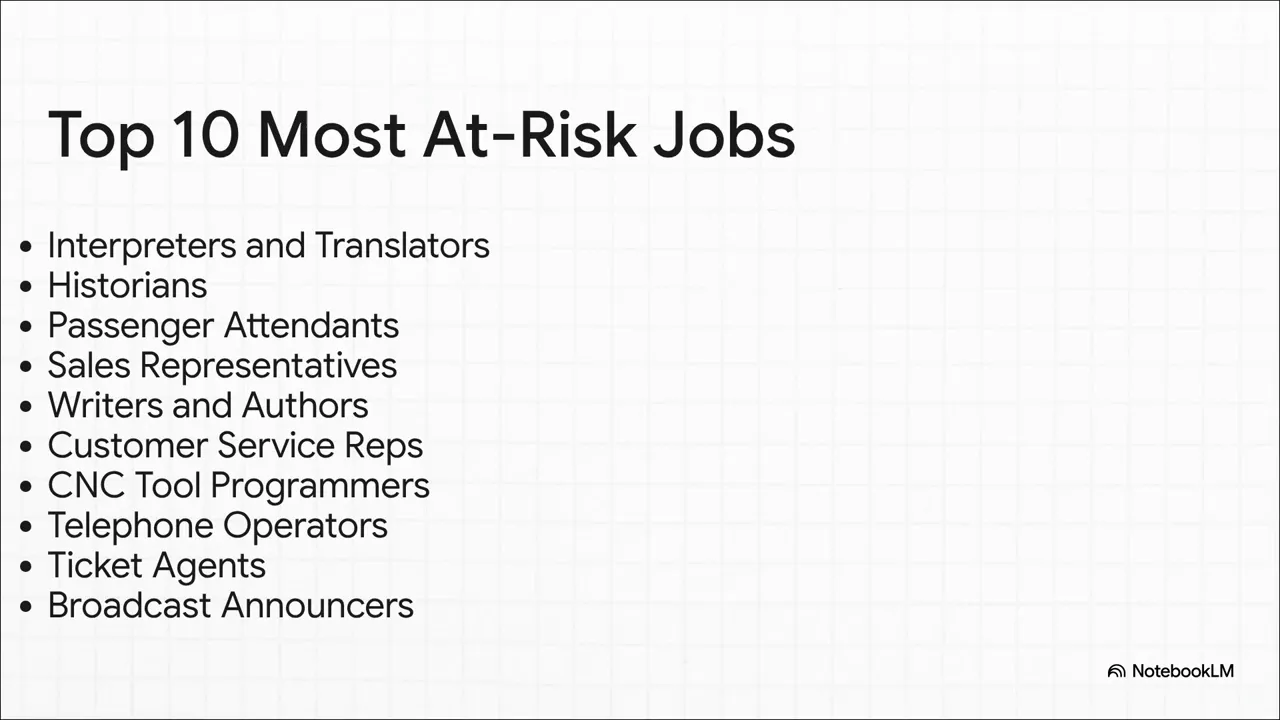
The Jobs Least Impacted by AI
On the flip side, there’s a starkly different group of jobs where AI seems to have the least impact:
- Phlebotomists (drawing blood)
- Hazmat removal workers
- Painters helpers
- Oral surgeons
- Auto glass installers
- Tire repair technicians
These are all hands-on jobs that require physical interaction with the real world—skills that AI can’t easily replicate or replace.
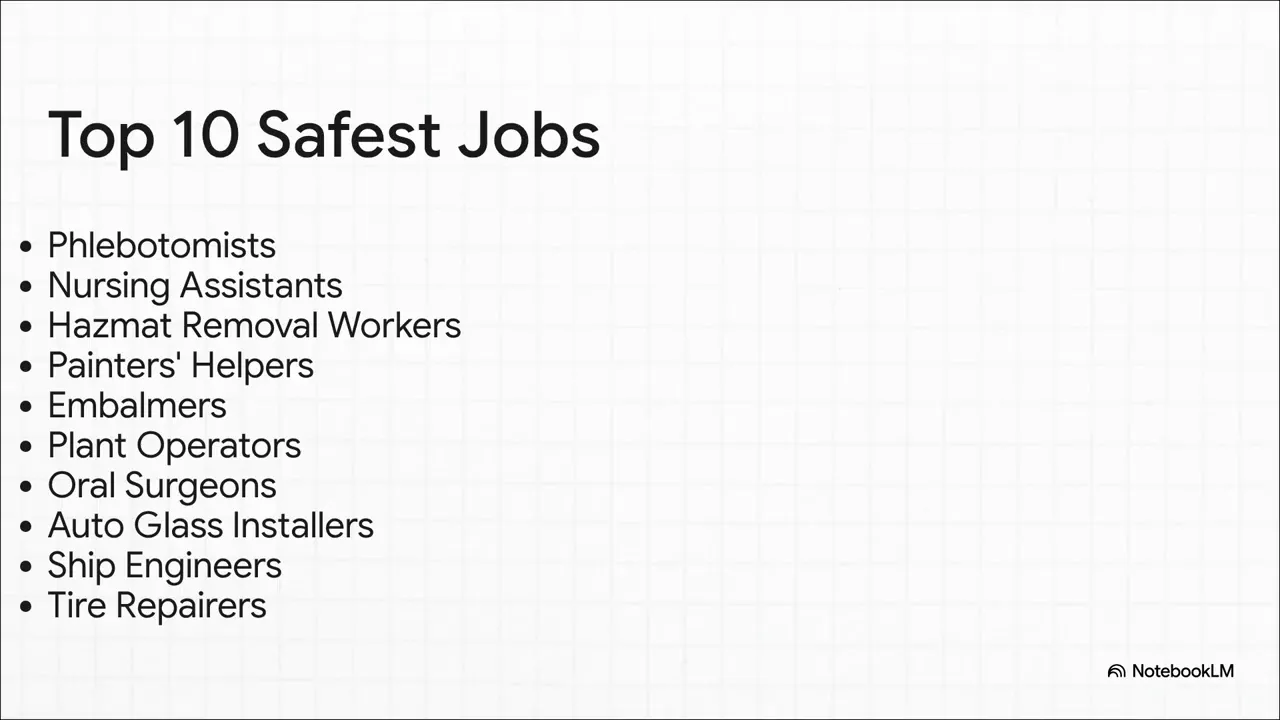
The Real Difference: Information vs. Physical Work
So, what fundamentally separates jobs that are highly impacted by AI from those that aren’t? It’s not about salary, education level, or prestige. It boils down to this simple but powerful distinction:
The jobs AI can most easily jump into are those centered on working with information and language. The jobs least impacted are those that involve working physically with your hands in the real world.
This insight is backed directly by the Microsoft report, which states the highest AI applicability scores belong to "knowledge work and jobs that involve providing and communicating information."
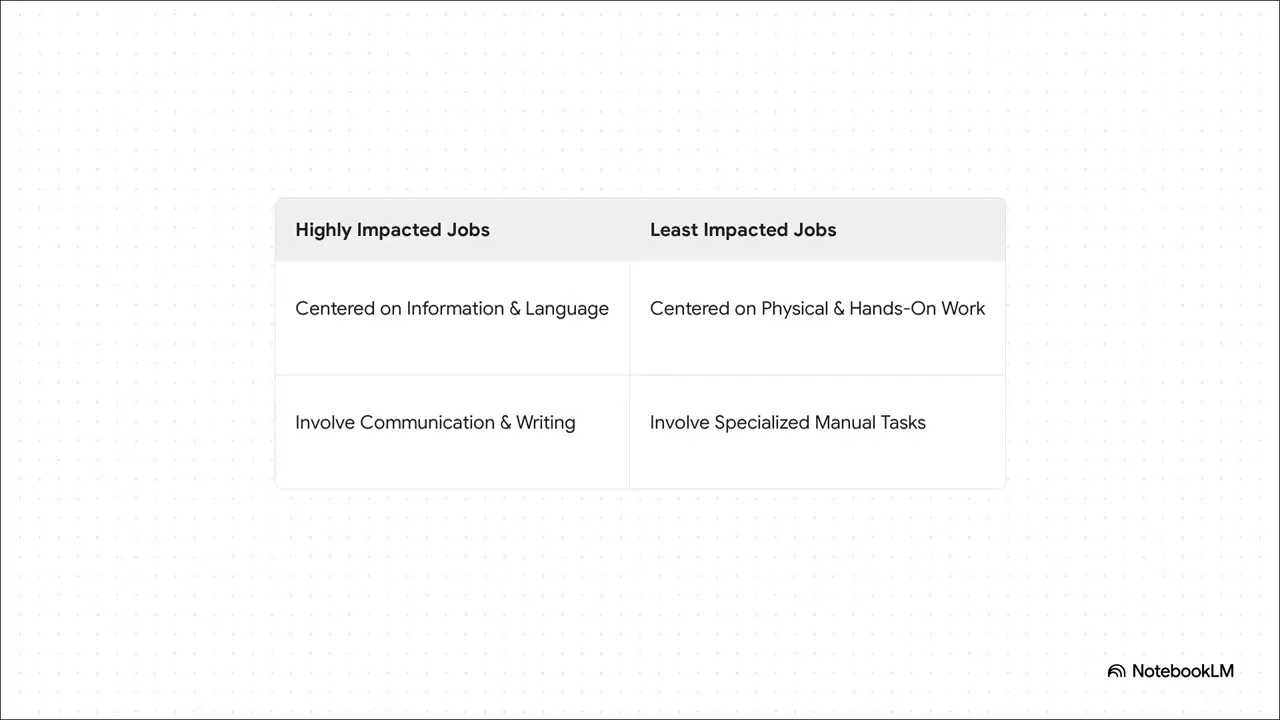
What This Means for Your Career
Understanding this distinction changes how you should think about your own job and future career prospects. Instead of fixating on your job title, ask yourself:
- Are my daily tasks mostly about moving information around, writing, or communicating?
- Or are they about physically building, fixing, or moving things in the real world with my hands?
According to this research, the answer to that question will tell you much more about your job’s future than anything printed on your business card.
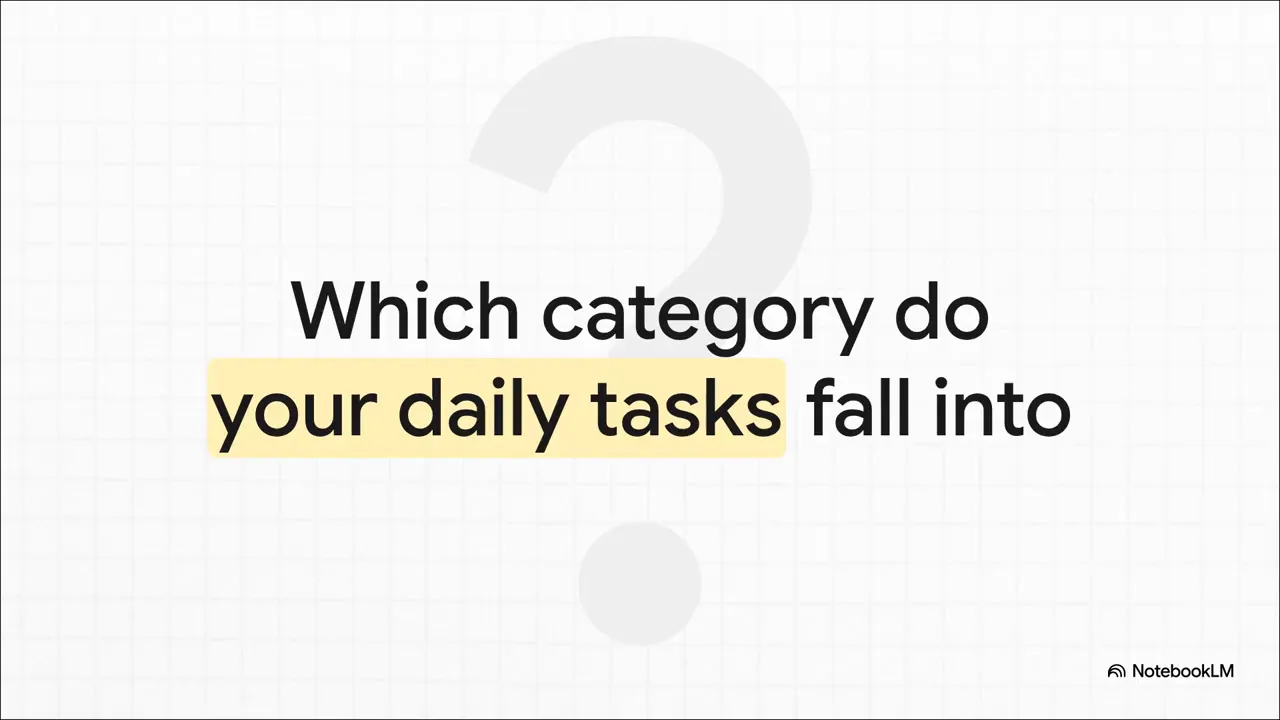
How to Stay Ahead in an AI-Driven World
If your job revolves heavily around information, communication, or language, it’s not necessarily doomed—but it’s wise to anticipate how AI might change your workflow. Embracing AI as a tool to enhance your productivity could be your best move. For those in physically oriented roles, your skills remain in high demand, but staying adaptable and learning complementary digital skills can future-proof your career even further.
FAQ
Will AI take my job completely?
Not necessarily. AI is more likely to assist with or automate specific tasks within jobs rather than replace entire occupations outright. Jobs heavily focused on knowledge work and language tasks are more susceptible to AI integration.
Which industries are most at risk from AI?
Industries involving translation, writing, customer service, and technical programming tasks show higher AI applicability. However, the impact varies widely across roles within industries.
Are hands-on jobs safe from AI?
For now, yes. Jobs that require physical labor, dexterity, and complex real-world interactions—like phlebotomy, hazmat removal, or tire repair—are much less affected by AI advancements.
How can I prepare if my job involves information work?
Focus on skills that complement AI, such as critical thinking, creativity, emotional intelligence, and managing AI tools effectively. Learning to work alongside AI can make you indispensable.
Is education level a factor in AI risk?
No. The key factor is the nature of daily tasks, not how many degrees you have. Both highly educated knowledge workers and less formally educated workers can be affected depending on the tasks they perform.
Understanding whether will AI take my job depends on what you do every day, not just your job title, is the first step toward navigating the future of work with confidence. Stay informed, stay adaptable, and leverage AI as a tool rather than fearing it as a threat.
Free Google Analytics 4 Guide |
|
Check out this really cool thing |
| Click me |